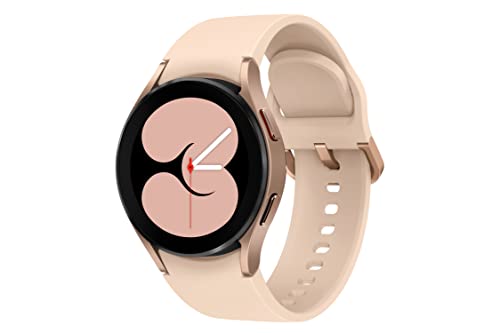
Introduction to Fitness Trackers
Fitness trackers have emerged as essential tools for individuals seeking to enhance their health and wellness. These compact, wearable devices are designed to monitor various physical activities and vital health metrics, thus assisting users in taking charge of their fitness journeys. As the emphasis on healthy living has intensified, fitness trackers have gained significant popularity among a diverse demographic, from fitness enthusiasts to those aiming to lead healthier lifestyles.
The primary purpose of a fitness tracker is to provide real-time data regarding one’s physical activities, such as steps taken, calories burned, and sleep quality. Many of these devices are equipped with advanced sensors capable of tracking heart rate, GPS location, and even blood oxygen levels. This detailed feedback serves not only to motivate users but also to inform them of their progress, helping them set achievable fitness goals.
There is an extensive variety of fitness trackers available on the market today, each catering to different preferences and requirements. Some models are designed as simple pedometers, focusing solely on step counting, while others offer a comprehensive suite of features that tracks multiple aspects of health and wellness. Smartwatches often double as fitness trackers, providing users with notifications and apps, further enhancing their utility.
As technology continues to advance, the capabilities of fitness trackers are evolving rapidly, integrating with smartphone applications and enabling users to better analyze their data. This integration allows for detailed analysis and offers insights into trends over time, thus promoting a more profound understanding of personal health patterns. Overall, the rise of fitness trackers signifies a growing awareness of health management and personal accountability in maintaining a balanced lifestyle.
Basic Fitness Bands
Basic fitness bands have gained popularity among individuals looking to monitor their physical activity without the overwhelming features of more advanced devices. These simplistic yet efficient tools primarily focus on essential features like step tracking, calorie counting, and basic activity level monitoring. When it comes to functionality, these bands excel in providing users with foundational data to help them grasp their exercise habits and encourage healthier lifestyle choices.
One of the primary advantages of basic fitness bands is their affordability. Unlike premium fitness trackers that boast numerous high-end features, basic bands are designed to cater to budget-conscious consumers seeking practical solutions. Their lower price point does not compromise their effectiveness; indeed, many users find that the core functionalities adequately meet their fitness tracking requirements. Additionally, these devices are often lightweight, making them comfortable for all-day wear during various activities, including workouts, walking, and even sleeping. This lightweight design is important, particularly for fitness beginners who may be cautious about adopting new routines.
The ease of use associated with basic fitness bands further solidifies their appeal. With user-friendly interfaces and simple syncing options with smartphones, users can quickly access their fitness data without the learning curve that often accompanies more intricate devices. This accessibility allows individuals, particularly those who may not be tech-savvy, to seamlessly incorporate fitness tracking into their daily lives. As a result, these bands often serve as motivational tools, encouraging users to stay active and set achievable fitness goals. Overall, the combination of affordability, lightweight design, and user-friendly features make basic fitness bands an excellent starting point for anyone looking to monitor their health and fitness levels effectively.
Advanced Fitness Trackers
As the world of fitness tracking continues to evolve, advanced fitness trackers are becoming increasingly popular among serious fitness enthusiasts. These devices provide intricate features that extend beyond basic step counting, making them valuable tools for achieving health and fitness goals. Advanced fitness trackers typically integrate capabilities such as heart rate monitoring, sleep tracking, and stress analysis, all of which are critical components for a holistic view of one’s health.
Heart rate monitoring is a pivotal feature of advanced fitness trackers. It enables users to gauge their cardiovascular performance and adjust their workouts accordingly. Real-time heart rate data allows individuals to train within specific intensity zones, optimizing their exercise effectiveness. Many advanced trackers also offer insights into resting heart rates and heart rate variability, contributing to overall fitness proficiency and providing information on recovery periods.
Sleep tracking is another significant functionality found in advanced fitness trackers. By analyzing sleep patterns and cycles, these devices help users identify their sleep quality and duration. This information is essential, as adequate rest is crucial for recovery and peak performance. Some trackers can even recommend adjustments to improve sleep quality, which can enhance overall well-being and athletic performance.
Stress analysis features are gaining traction in the realm of fitness tracking as well. Many advanced devices measure physiological indicators of stress, such as heart rate variability and cortisol levels. Understanding stress patterns enables users to implement stress management techniques, enhancing mental acuity and overall health.
Finally, built-in GPS functions allow users to track their outdoor activities without the need for a smartphone, providing data on distance covered and pace. This capability is particularly beneficial for runners and cyclists who wish to monitor their performance and progress over time. Overall, the integration of these advanced features empowers fitness enthusiasts to take a more comprehensive approach to their health and performance, ensuring they remain engaged and informed on their fitness journey.
Smartwatches with Fitness Features
Smartwatches have emerged as indispensable devices in the realm of fitness tracking, merging traditional smartwatch functionalities with advanced fitness features. These devices are designed for individuals seeking to maintain a connected lifestyle while also prioritizing their health and wellness. They provide users with the convenience of receiving notifications, controlling music, and accessing various applications right from their wrist, all while diligently monitoring various aspects of their fitness journey.
One notable advantage of smartwatches equipped with fitness tracking capabilities is their ability to seamlessly transition between different activities and functionalities. For instance, during a workout session, users can track their heart rate, calories burned, and steps taken, allowing them to assess their performance in real-time. After the workout, these devices typically sync with dedicated apps to provide comprehensive insights into the user’s overall fitness data over time, helping them set goals and track progress effectively.
Moreover, many smartwatches offer a variety of sports modes, catering to different preferences, whether running, cycling, swimming, or even yoga. This versatility appeals to tech-savvy individuals who not only want to enhance their fitness but also streamline their daily routines. Furthermore, features such as GPS tracking ensure that users can accurately monitor their outdoor activities without needing to carry their smartphones.
Additionally, integration with smart home devices and voice assistants enhances the overall user experience, enabling individuals to control their environment, listen to music, and communicate effortlessly. With growing interest in smartwatches that prioritize health and connectivity, it is crucial for consumers to recognize how these devices can complement their fitness aspirations while also simplifying everyday tasks. As technology advances, smartwatches with fitness features continue to evolve, offering even greater capabilities for those pursuing a healthy lifestyle.
Sports-Specific Fitness Trackers
In the realm of fitness technology, sports-specific fitness trackers have emerged as invaluable tools for athletes and enthusiasts alike. These devices are meticulously designed to cater to the unique requirements of various sports, thereby promoting an enhanced training experience. One of the key features of these specialized fitness trackers is the inclusion of multiple sport modes. By enabling users to select different settings for activities such as running, cycling, or swimming, these trackers can provide more accurate data and insights pertinent to each sport.
For instance, runners can benefit from advanced metrics like cadence, stride length, and heart rate variability, which are instrumental in optimizing their performance. Cyclists, on the other hand, may find it beneficial that certain trackers offer features such as cycling cadence and GPS tracking to accurately monitor distance and speed. Similarly, swimmers can utilize fitness trackers that are waterproof and equipped with features to track lap count, stroke efficiency, and even rest times between laps.
Moreover, these devices often integrate with mobile applications, allowing athletes to review their statistics and compare their performance over time. This data-driven approach not only aids in setting realistic goals but also in making informed adjustments to training regimens. Users can analyze their performance trends, which can reveal areas for improvement or assist in identifying the best strategies to enhance their athletic skills.
Furthermore, many sports-specific fitness trackers come equipped with additional features such as guided workouts, recovery tracking, and even nutritional advice, thereby fostering a holistic approach to fitness and health. These specialized trackers serve as a reliable partner in any athlete’s journey, effectively bridging the gap between data collection and actionable insights. Ultimately, selecting the right fitness tracker tailored to one’s specific sport can significantly improve performance and training outcomes.
Tracking Health: Beyond Fitness
Fitness trackers have evolved significantly over the years, transitioning from mere physical activity monitors to comprehensive health management tools. These devices now encompass a wide array of health-tracking capabilities that provide users with vital insights into their overall wellness, surpassing traditional fitness monitoring. One of the most significant advancements is the ability to monitor heart health. Many fitness trackers are equipped with heart rate sensors that continuously analyze heart rates, offering users a clearer picture of their cardiovascular health. Understanding variations in heart rate can assist in identifying stress levels and evaluating the effectiveness of workouts.
In addition to heart health, hydration tracking is becoming a crucial feature in many fitness trackers. Maintaining proper hydration is essential for optimal bodily functions, particularly during exercise. Some devices allow users to log their water intake, offering reminders to stay hydrated throughout the day and thus positively impacting performance and recovery.
Another noteworthy capability is menstrual cycle tracking, which provides women with insights into their reproductive health. By logging menstrual cycles, users can track symptoms, predict their periods, and even identify patterns related to their physical and emotional well-being. This functionality not only assists in planning activities but also enhances awareness of overall hormonal health.
Moreover, fitness trackers may monitor various other advanced health metrics, such as sleep patterns, blood oxygen levels, and stress levels. These insights empower users to make informed decisions about lifestyle choices and health management. Users can gain a deeper understanding of their health trajectory by integrating data from physical activity with these health indicators. Thus, fitness trackers are not just tools for fitness enthusiasts but vital companions in the journey toward holistic health management, supporting individuals in achieving their specific wellness goals.
Integration with Mobile Apps
Mobile applications play a critical role in enhancing the functionality and user experience of fitness trackers. These apps are designed to work seamlessly with fitness trackers, providing users with a comprehensive platform for monitoring their fitness journey. Through these applications, users can easily analyze the data collected by their devices, which includes metrics such as steps taken, calories burned, heart rate, and sleep patterns.
One of the primary benefits of integrating fitness trackers with mobile apps is the ability to set personalized fitness goals. Users can input their objectives, whether it be weight loss, muscle gain, or improved cardiovascular endurance. The app then utilizes the data gathered by the fitness tracker to provide tailored recommendations, enabling users to adjust their activity levels and dietary habits to meet their goals effectively.
Furthermore, fitness apps often include community engagement features, allowing users to connect with friends, join fitness challenges, and share achievements. This social aspect fosters a sense of accountability and motivation, which is instrumental in maintaining a consistent workout routine. Users are more likely to stay committed to their fitness plans when they have a support network cheering them on.
Additionally, many fitness tracker apps offer integration with third-party services and platforms, thereby allowing users to sync their data with popular health and wellness applications. This capability enhances the overall user experience, as it consolidates health information in one place, giving users a more comprehensive view of their fitness journey.
In conclusion, the integration of mobile apps with fitness trackers is vital for optimizing the data-driven experience in personal fitness management. By facilitating data analysis, goal setting, and community engagement, these applications not only enhance user experience but also promote a holistic approach to fitness that can lead to better results and overall well-being.
Choosing the Right Fitness Tracker
Selecting the right fitness tracker is a crucial step in achieving your personal health and fitness goals. With a myriad of options available on the market, understanding your specific needs and preferences will significantly influence your choice. Begin by assessing your lifestyle. Are you a casual walker aiming for more movement, or an athlete requiring advanced data tracking? Your primary fitness activity will narrow down the features you should prioritize in a tracker, such as heart rate monitoring, GPS capabilities, or specific sport modes.
Budget is also an important consideration. Fitness trackers can range from budget-friendly options to high-end devices loaded with features. It is advisable to determine a comfortable price range before beginning your search. While it may be tempting to opt for the least expensive model, consider investing in a tracker that caters to your fitness needs for a more effective experience.
Compatibility should not be overlooked when choosing a fitness tracker. Ensure that the device syncs smoothly with your existing smartphones or tablets, as well as any fitness apps you regularly use. This ensures easy access to your data and a seamless experience while tracking your workouts, sleep, and other health metrics.
Lastly, personal preference plays a significant role in your decision. Factors such as design, ease of use, and the type of display can greatly impact your overall satisfaction with the device. Some may prefer a discreet model that can be worn all day, while others might favor one with a bold display. Ultimately, aligning your choice with your needs, preferences, and budget will ensure that the fitness tracker you select integrates seamlessly into your lifestyle.
Future Trends in Fitness Tracking Technology
As we move further into the 21st century, the landscape of fitness tracking technology is set to evolve dramatically. One of the most notable advancements on the horizon is the integration of enhanced biometric sensors. Current fitness trackers already monitor heart rate, steps, and calories burned, but future devices are expected to include capabilities such as blood glucose monitoring, hydration sensors, and even advanced sleep pattern analysis. These innovations will provide users with a more comprehensive view of their health, allowing for data-driven insights that were previously unattainable.
Another significant trend involves the incorporation of artificial intelligence (AI) into fitness trackers. By leveraging machine learning algorithms, these devices will be able to deliver personalized coaching tailored to the individual’s fitness level, goals, and even daily routines. This AI-driven approach can help users stay motivated and engaged by offering real-time feedback and adjustment recommendations based on the user’s performance and biometric data. This means that as individuals make progress, their fitness plans can adapt dynamically, ensuring that workouts remain challenging and effective.
Moreover, the future of fitness tracking technology is closely tied to the rise of wearables in the broader context of health management. As the Internet of Things (IoT) continues to gain traction, it is likely that fitness trackers will integrate seamlessly with other smart devices and health platforms, enabling users to monitor their overall wellness in a more holistic manner. This connectivity could facilitate collaborative health care models where fitness data is shared with health professionals, leading to better health outcomes through coordinated care strategies. Overall, as these advancements unfurl, fitness trackers will not only assist in personal fitness journeys but also play a pivotal role in the future of health and wellness management.







































![SAMSUNG Galaxy Ring, AI Smart Ring, Size First w/Sizing Kit, No App Subscription, Fitness Monitor, Sleep Tracker, Up to 7-Day Battery, Size 11, Titanium Silver [US Version, 1Yr Manufacturer Warranty]](https://m.media-amazon.com/images/I/41ILlTxUYDL.jpg)

